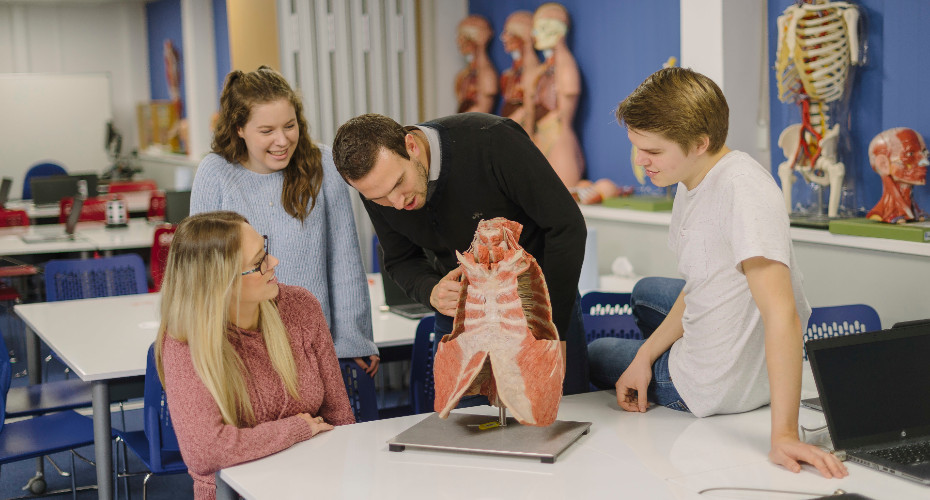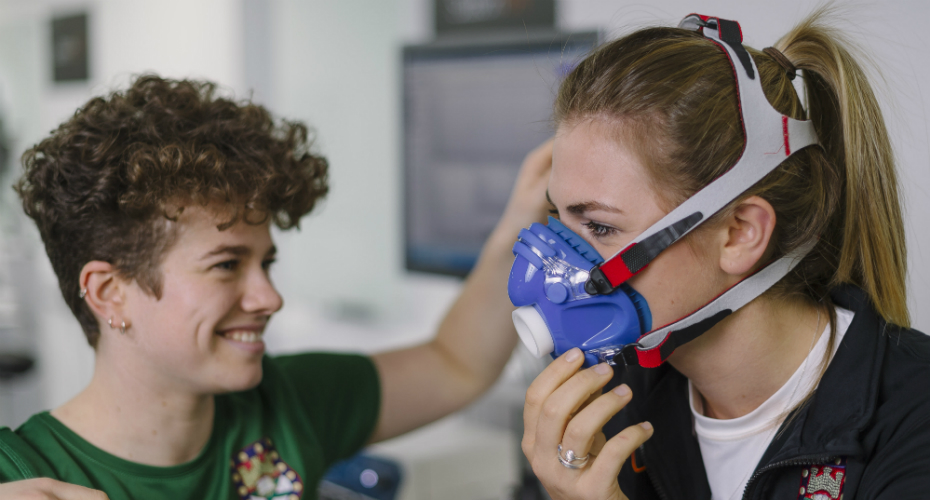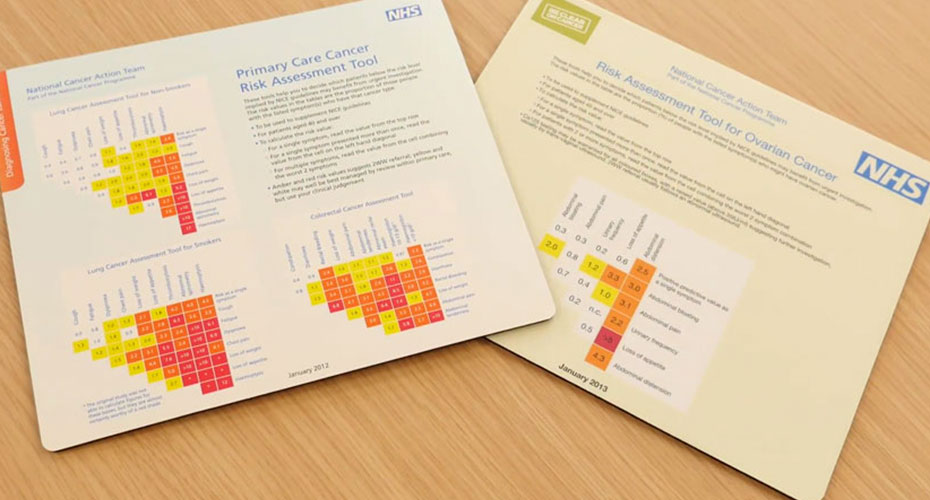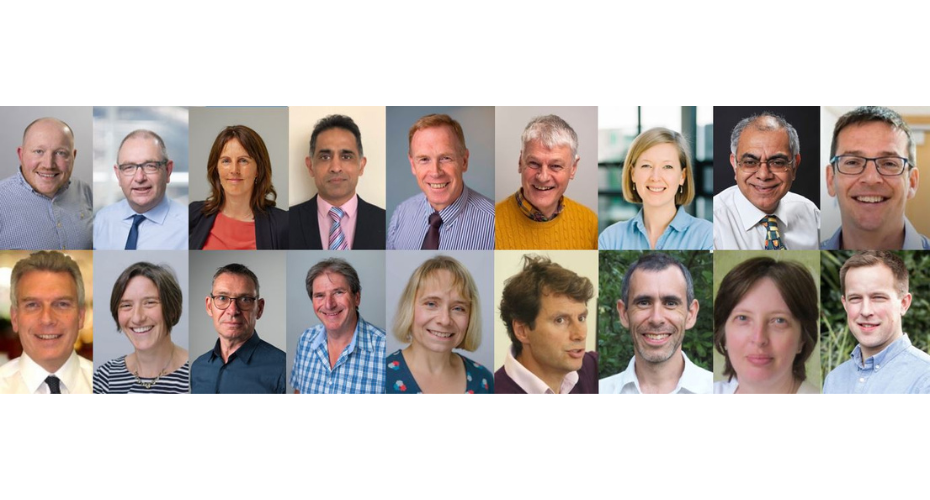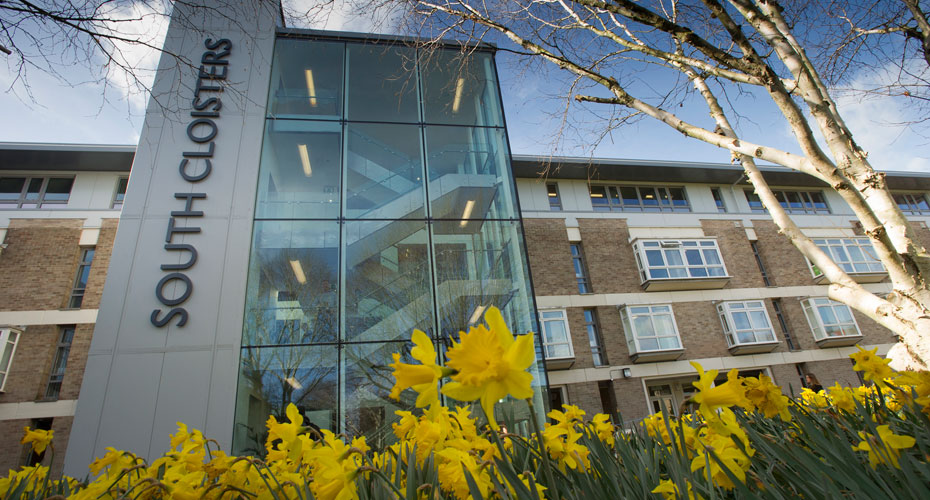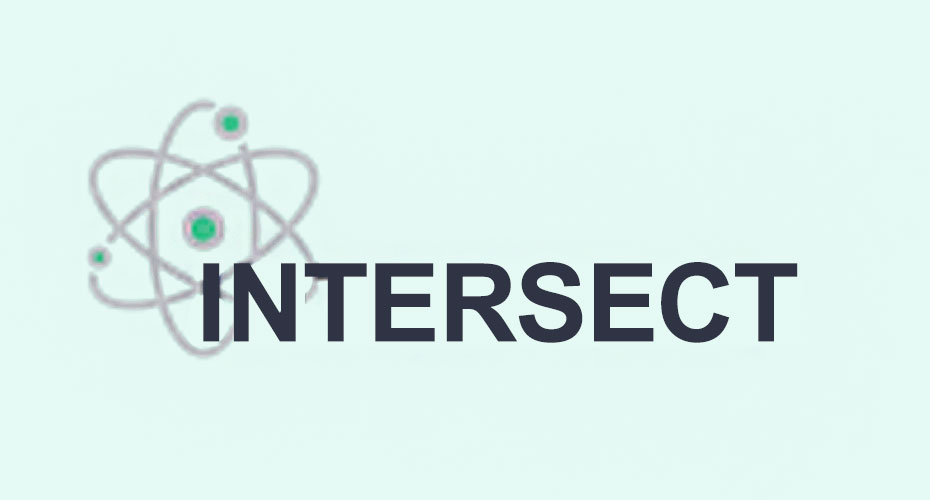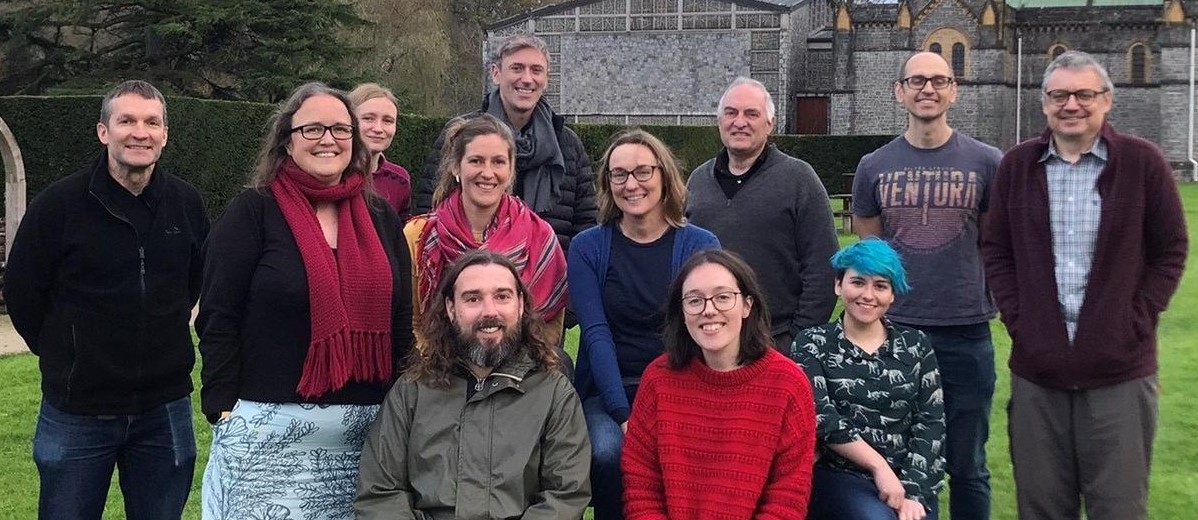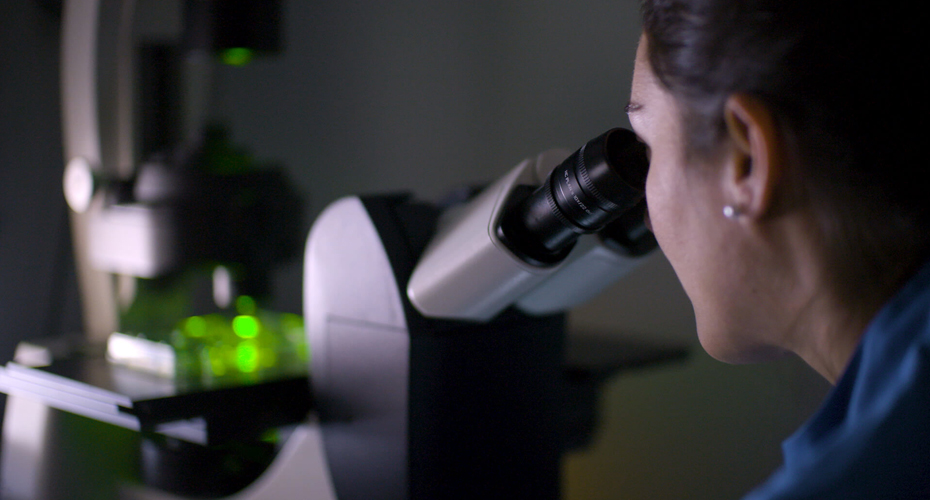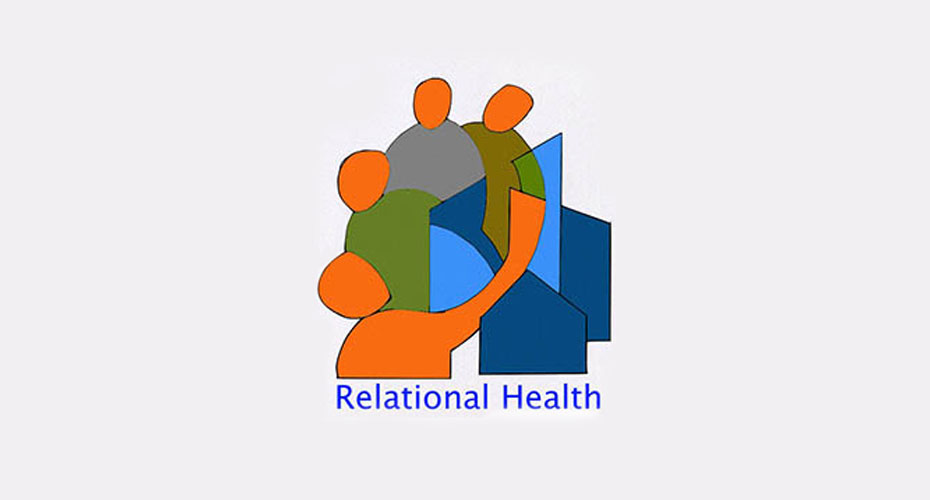Research
Our research is driven by a shared passion for advancing knowledge, improving health outcomes and making a positive impact on communities at a national and international level.
Through our research groups we bring about interdisciplinary excellence, impactful research collaborative partnerships, and ethical practices, to ensure a world-leading impact in health and care applied research.
Join us on this exciting journey as we push the boundaries of knowledge and contribute to improving the health and well-being of individuals and creating more resilient communities.
Read more from Professor David Llewellyn
Professor David Llewellyn
Director of Research and Impact
![]()
Our health research impact is world-leading 1
1 REF 2021: research submitted across health, life sciences and environment-related units
![]()
Award-winning research academics
![]()
Key research partnerships
with National Institute for Health and Care Research, UK Research and Innovation, the NHS and Cancer Research UK
Our research
The Health and Community Sciences Department explores a wide range of research areas, that address pressing challenges in our national and international communities. Our researchers are dedicated to advancing knowledge and making a meaningful impact on various aspects of human health and well-being.
Cognitive Health, including Dementia: Our researchers investigate the cognitive aspects of health, with a particular focus on dementia. We explore the causes, risk factors, and progression of cognitive decline, as well as interventions to promote brain health and improve the quality of life for individuals living with dementia.
Child Health and Disability: We prioritise research that improves the health and well-being of children and addresses the challenges faced by children with disabilities. Our researchers investigate paediatric health issues, childhood development, interventions for children with disabilities, and strategies to enhance the quality of life for young individuals.
Cancer Diagnosis: Our research in cancer diagnosis aims to improve early detection and enhance diagnostic methods for various types of cancer. We explore innovative approaches, such as biomarkers, imaging technologies, and molecular diagnostics, to improve accuracy, efficiency, and patient outcomes in cancer diagnosis.
Patient Experience: We are committed to understanding the patient experience and ensuring that healthcare services are patient-centered. Our researchers investigate factors influencing patient satisfaction, communication between healthcare providers and patients, and strategies to enhance the overall patient experience.
Well-being and Quality of Life: Our research focuses on promoting well-being and improving the quality of life for individuals across the lifespan. We explore factors that contribute to well-being, mental health, social support systems, and interventions that enhance the overall quality of life for individuals and communities.
Trauma and Orthopaedics: We host a unique research intensive interdisciplinary environment with insights from clinical academics with broad experience in diseases of aging and across the life-course including neurologic and musculoskeletal diseases.
Healthy Aging: Our researchers aim to enhance healthy aging and promote independence among older adults. We explore strategies to prevent age-related diseases, optimise physical and mental well-being, and develop interventions to support older adults in maintaining a high quality of life as they age.
Health Inequalities: We are dedicated to addressing health inequalities and reducing disparities in access to healthcare and health outcomes. Our researchers investigate the social determinants of health, health disparities among marginalized populations, and interventions that promote health equity.
The Health and Community Sciences Department is home to a diverse range of research groups and core methodological skills that drive our pursuit of knowledge and innovation in the fields of health and community sciences. Our multidisciplinary approach enables us to tackle complex challenges from various angles, fostering a collaborative environment where researchers with different expertise come together to generate impactful insights.
- Medical Statistics: Our team of expert statisticians specialise in designing robust research studies, analysing complex data sets, and interpreting statistical findings. They employ advanced statistical methods to uncover patterns, relationships, and trends in health-related data. The application of medical statistics ensures that our research is evidence-based, reliable, and statistically sound.
- Health Economics: Our health economists explore the economic aspects of healthcare and their impact on individuals, communities, and healthcare systems. They evaluate the cost-effectiveness of interventions, assess healthcare resource allocation, and analyse health policy implications. By understanding the economic dimensions of health and care, our research provides valuable insights for decision-makers and policymakers.
- Sociology and Qualitative Methods: Our researchers delve into the social and cultural factors that shape health beliefs, behaviours, and experiences. They employ qualitative research methods, such as interviews, focus groups, and ethnographic studies, to gain a deeper understanding of the lived experiences of individuals and communities. This perspective enriches our research by considering the social context and cultural nuances that influence health outcomes.
- Epidemiology: Our epidemiologists study the distribution and determinants of health and disease in populations. They investigate patterns of disease occurrence, identify risk factors, and evaluate preventive measures. Through epidemiological research, we gain critical insights into the causes and consequences of health-related issues, informing strategies for disease prevention and health promotion.
- Clinical Trials: Our researchers in clinical trials design and conduct rigorous studies to evaluate the safety and effectiveness of medical interventions. By following strict protocols and ethical guidelines, we generate high-quality evidence that informs clinical practice and improves patient outcomes. Our clinical trials are pivotal in advancing medical knowledge and facilitating evidence-based decision-making.
- Operational Research: Our operational researchers apply mathematical modelling, optimisation techniques, and data analysis to improve the efficiency and effectiveness of healthcare systems and services. They identify bottlenecks, streamline processes, and develop strategies to enhance resource allocation, patient flow, and service delivery. Operational research plays a crucial role in optimising healthcare operations and improving patient experiences.
- Diagnostics/Testing: Our researchers focus on developing and evaluating innovative diagnostic tools and testing methods. They strive to enhance accuracy, efficiency, and accessibility in the diagnosis and monitoring of diseases. By advancing diagnostic capabilities, we contribute to early detection, effective treatment, and improved patient outcomes.
- Patient Public Involvement & Engagement: Our department places great emphasis on involving patients, the public, and other stakeholders in the research process. Their perspectives, experiences, and input are vital in ensuring our research is relevant, meaningful, and inclusive.
- Systematic reviews: Our experienced systematic reviewers and information specialists lead and advise on a wide range of evidence synthesis projects, with particular expertise in conducting rapid and responsive evidence syntheses to inform health and social care policy, service commissioning and clinical practice. Across our teams (see ESMI research group) we have particular expertise in producing mixed methods syntheses, realist syntheses, evidence and gap maps, meta-analysis, and reviews of qualitative evidence. Our reviews and innovative methods regularly directly inform decision-making within NHS England, the Department of Health and Social Care and other national policy makers.
![]()
Evidence Synthesis & Modelling for Health Improvement (ESMI)
To explore these research areas and more, we encourage you to visit the individual research group pages. Each research group specialises in specific topics and methodologies within these areas, allowing you to delve deeper into the work and expertise of our researchers.
Interdisciplinary Excellence
We firmly believe that breakthroughs in health and care professions come from the convergence of diverse perspectives and expertise. We encourage our researchers from various disciplines to work together, fostering a vibrant research ecosystem that thrives on the exchange of ideas. By promoting interdisciplinary collaboration and knowledge sharing, we aim to unlock novel insights and innovative solutions to complex challenges.
Collaborative Partnerships
We recognise that meaningful and sustainable progress is best achieved through strategic partnerships. We actively seek collaborations with academic institutions, industry leaders, governmental organisations, and community stakeholders. By forging these alliances, we can leverage shared resources, expertise, and perspectives to amplify the impact of our research. Collaborative partnerships enable us to co-create knowledge, develop innovative interventions, and facilitate the adoption of evidence-based practices in real-world settings.
Impactful Research
Our research is dedicated to making a difference. We prioritise research that directly responds to the needs of communities, contributes to policy development, and drives positive change in healthcare practices, patient outcomes, and societal well-being. We believe that research should generate tangible and meaningful impacts, and we actively strive to translate our findings into actionable solutions that benefit individuals, families, and communities.
Stay updated through our news section with the latest research findings, ongoing projects, and collaborative opportunities as we strive to make a lasting impact on health and well-being.
